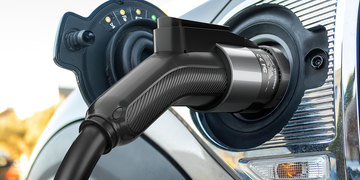How much is a charging station? The price of Telgeoot Level 2 electric vehicle charging station is less than 400 US dollars. Buy now with 20% discount. The specific price will change according to the form of charging piles in the market. Keep an eye on Telgeoot car charging company to know the price faster Changes.
As electric vehicles (EVs) gain popularity, the need for reliable and efficient charging infrastructure becomes increasingly crucial. One common question among prospective EV owners is, "How much is a charging station?" The cost of a charging station can vary widely depending on several factors, including the type of charger, its power capacity, and additional features. Here are some general estimates:
How much is a charging station? Level 1 and Level 2 DC Charger Prices
Level 1 (120V) Home Charging Stations:
Basic home chargers that use a standard 120-volt household outlet are usually the most affordable.
Prices typically range from $200 to $600, and some may include additional features like smartphone connectivity.
Level 2 (240V) Home Charging Stations:
Level 2 chargers, which require a 240-volt electrical supply, are faster than Level 1 chargers.
Prices can range from $500 to $1,200 or more, depending on the brand, power capacity, and added features.

DC Fast Chargers:
DC fast chargers are high-capacity chargers commonly found in public charging stations.
The cost for DC fast chargers can be significantly higher, ranging from $10,000 to $50,000 or more, depending on the charging speed and other features.
Installation Costs:
Installation costs for a home charging station can vary based on factors like electrical work required, distance from the main electrical panel, and local labor rates.
Installation costs may range from a few hundred to a few thousand dollars.
How much is a charging station? The cost of a charging station varies based on factors such as charger type, power capacity, and installation requirements. While Level 1 and Level 2 home chargers are more affordable, DC fast chargers, commonly found in public spaces, can be considerably more expensive. As the EV landscape continues to evolve, staying informed about charging infrastructure costs remains crucial for both current and prospective electric vehicle owners.





